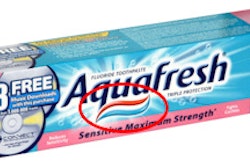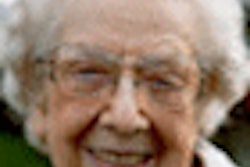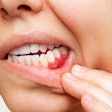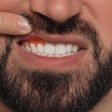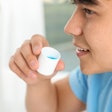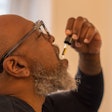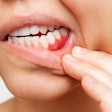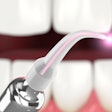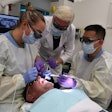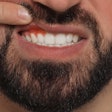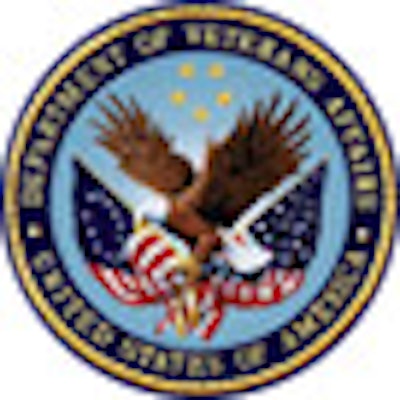
Four of the more than 1,800 U.S. veterans who were potentially exposed to infectious diseases at a St. Louis Veterans Affairs (VA) dental clinic have now tested positive for hepatitis, and lawmakers are questioning the agency's handling of the matter.
In June the VA sent letters to 1,812 patients who underwent dental procedures at the John Cochran St. Louis VA Medical Center between February 2009 and March 2010, advising them that they may have been exposed to hepatitis B, hepatitis C, and HIV while at the clinic.
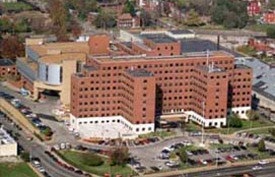 |
| John Cochran St. Louis VA Medical Center. Image courtesy of U.S. Deptartment of Veterans Affairs. |
During a routine inspection of the facility in March, federal inspectors found that dental instruments used at the clinic had not been cleaned according to proper protocol. They had been hand washed in a sink instead of being put through a special washing machine before they were autoclaved.
The hospital has since come under fire for waiting more than two months to contact patients potentially affected and allowing the breach to occur in the first place. In late June Rep. Russ Carnahan (D-MO) sent letters to President Barack Obama and Secretary of Veterans Affairs Eric Shinseki insisting they immediately investigate the matter. Shinseki subsequently called the mistakes "unacceptable" and said corrective steps have been taken to ensure veterans' safety, according to a VA press release.
The House Committee on Veterans' Affairs is also looking into what happened at the center, and on July 29 Carnahan announced that the Government Accountability Office and the VA's Inspector General will also launch formal investigations.
"Throughout this process, I have had two primary concerns," Carnahan said in a press release. "First, what is being done to make sure that we are taking care of the veterans who were affected by the problems at Cochran. And second, making sure that something like this never happens again. These independent investigations are critical to make sure we have a full understanding of what happened so we can identify and fix any systemic problems that made such a grave error possible."
Four test positive
While the VA has contended that the risk of any of the 1,812 patients contracting one of the infectious diseases is "extremely low," on July 28 the agency reported that two patients had tested positive for hepatitis B and two for hepatitis C. The agency stressed that the cases are not necessarily linked to the sterilization breach and is conducting more testing to determine the source of the infections in these four veterans. As of July 21, 1,144 patients had been tested; of these, 809 tested negative for all three diseases, Elaine Buehler, a VA spokesperson, told DrBicuspid.com.
VA spokeswoman Gina Michael, M.D., said in an interview with local TV station KSDK that the instruments were washed with a chemical solution and stressed that they had been sterilized but that the "proper sequence wasn't followed." According to Centers for Disease Control and Prevention (CDC) guidelines, prior to sterilization, dental instruments should be scrubbed with a surfactant, detergent, and water, or by an automated process using chemical agents.
Dental assistants had hand washed the instruments out of concern that the instruments' fine points and tips might be damaged in the washing machine, Dr. Michael told KSDK. "Sometimes policies don't always get followed because people have very good intentions, but the end result is policy wasn't followed," she said.
Although the autoclave steam sterilizer (which reaches temperatures of 270° F) used at the clinic kills bacteria and viruses, patients were notified about the possibility of exposure "because we couldn't determine the risk to patients was zero," she said. "Viruses can be a little more hardy, and we couldn't be 100% sure that every instrument used in people's mouths was perfectly cleaned."
The agency decided to notify patients about the possible risk after an analysis of the issue by VA infectious disease experts, Dr. Michael said.
"If it doesn't meet our criteria and it's not absolutely 100%, we're always going to err on the side of caution, to ensure we provide the best possible care for our veterans," Beuhler told DrBicuspid.com.
Reinforcing best practices
The autoclave process probably eliminated the risk of transmitting infectious diseases, Therese Long, director of the Organization for Safety and Asepsis Procedures (OSAP), told DrBicuspid.com. OSAP's website provides information about the VA incident, CDC guidelines regarding the sterilization and cleaning of dental instruments, and information about the importance of proper instrument processing.
"Taken at face value, it does make one wonder why they've gone through these extraordinary measures," she said. "But it's a good occasion [for the VA] to review its policies, and it's a great opportunity to reinforce best practices."
After sending the warning letters, the VA medical center set up a special clinic for those who might be at risk and a call center for making appointments and getting additional information. But some veterans who went in for blood tests complained that when they called to inquire about the results, they were told that they would have to wait until a VA doctor called them -- in some cases more than two weeks later, according to a story in the St. Louis Post-Dispatch.
A technician who previously worked at the clinic testified at a special hearing in St. Louis in July that she had warned officials about unsanitary dental equipment at the hospital, but her concerns were ignored and she ultimately lost her job.
The clinic's chief of dental services, Danny Turner, was suspended following the incident. He welcomes the ongoing investigation and blamed the controversy on "politics," he told the St. Louis Post-Dispatch.
Copyright © 2010 DrBicuspid.com




